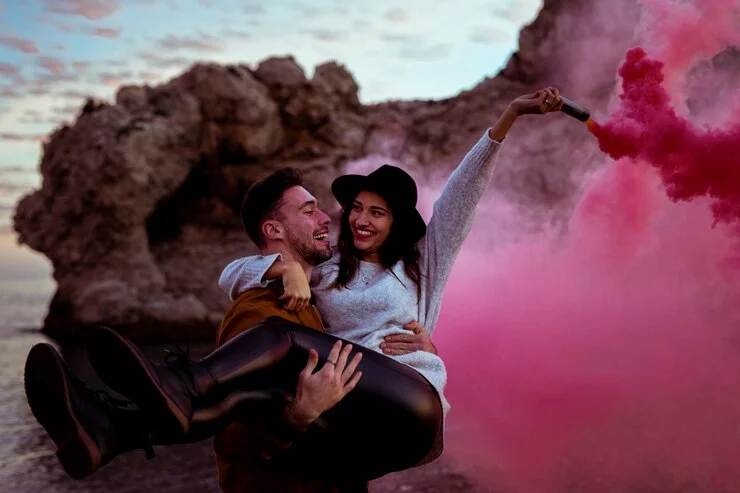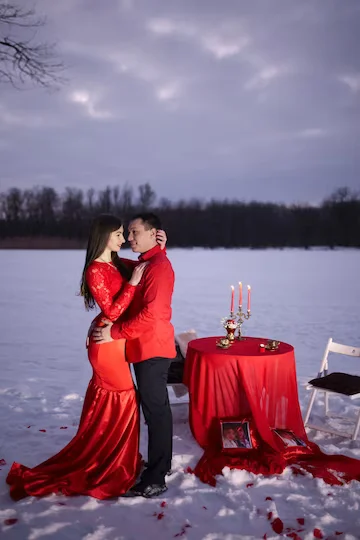The early stage of a new romantic relationship is often referred to as the “honeymoon phase” – those magical first few months when everything feels exciting, passions run high, and you can’t get enough of each other.
While the honeymoon phase is a time to soak up the romance and deepen your connection, it’s also helpful to understand the psychology behind it. Here’s an in-depth look at what causes this intoxicating period, how long it typically lasts, and how to make the most of it.
What is the Honeymoon Phase?
The honeymoon phase is widely recognized as the first stage of a romantic relationship, occurring roughly in the first 3-6 months. Key characteristics include:
- Constant excitement, elation, and “butterflies” when you’re together.
- Intense infatuation and attraction towards your new partner.
- A tendency to idealize your partner and see only their positive qualities.
- Wanting to be together constantly – long phone calls, dates, sleepovers.
- Focusing on your new relationship above all else in your life.
Essentially, the honeymoon is when everything still feels fresh, your partner can do no wrong, and being apart is painful. The joy and romance are at their peak.
Signs You’re in the Honeymoon Phase
How do you know for sure you’re in that initial intoxicating stage? Here are some of the most common signs:
- You can’t keep your hands off each other. Physical chemistry is electric.
- Your new relationship gives you an addictive “high” – a rush of dopamine.
- You exchange endless loving compliments, gifts, and affection.
- You begin talking about the future together very early on.
- You obsessively fantasize about long-term potential – moving in, getting married, etc.
In essence, when you’re in the honeymoon period, your brain is flooded with chemicals that make you infatuated. Everything feels amplified. Caution is thrown to the wind.
Why Does the Honeymoon Phase Happen?
There are several key reasons why the honeymoon phase occurs in new romantic relationships:
- Brain chemistry – Surges of dopamine and oxytocin create infatuation.
- Discovery – Learning new things about your partner is exciting.
- Idealization – You see your partner through rose-colored glasses.
- Projecting – You project your desires onto a still-unknown new partner.
This potent neurological cocktail makes us feel boundless passion towards someone we still have much to discover about.
How Long Does the Honeymoon Phase Last?
The duration of the honeymoon period can vary substantially depending on the relationship:
- Typically it lasts 3-6 months, sometimes up to 2 years.
- It depends on how often you see each other and emotional intimacy.
- Unique circumstances like long distance can lengthen it.
- On average it will fade within 1-2 years.
No matter how long yours lasts, the honeymoon phase will inevitably transition into a calmer, more stable companionship.
Making the Most of the Honeymoon Phase
Since the honeymoon period is fleeting, be sure to make the most of it while it lasts:
- Soak up the giddiness and romance. Have fun!
- Create magical memories and shared experiences.
- Bond over common interests, values, passions and goals.
- Begin establishing healthy communication and conflict habits.
- Balance your time together with seeing friends, family and hobbies.
The key is balancing your excitement with slowly building the real foundations for long-term commitment.
Transitioning Out of the Honeymoon Phase
As the honeymoon phase winds down, you’ll adjust to a new normal together. Here’s how to transition smoothly:
- Recognize it as a natural progression vs. a problem.
- Adjust unrealistic expectations as intensity cools off.
- Focus on deeper compatibility beyond chemistry.
- Make an effort to keep dating and having new experiences.
- Express appreciation for each other daily.
The ending of the honeymoon phase doesn’t mean you’ve fallen out of love – it simply evolves into a deeper lasting love. Enjoy it while it lasts!
The Bottom Line
The honeymoon phase is a magical period fueled by infatuation, passion and new discoveries when dating someone new. While the intensity will fade with time, savoring the excitement while building strong foundations can set you up for long-term relationship success once you emerge on the other side.

